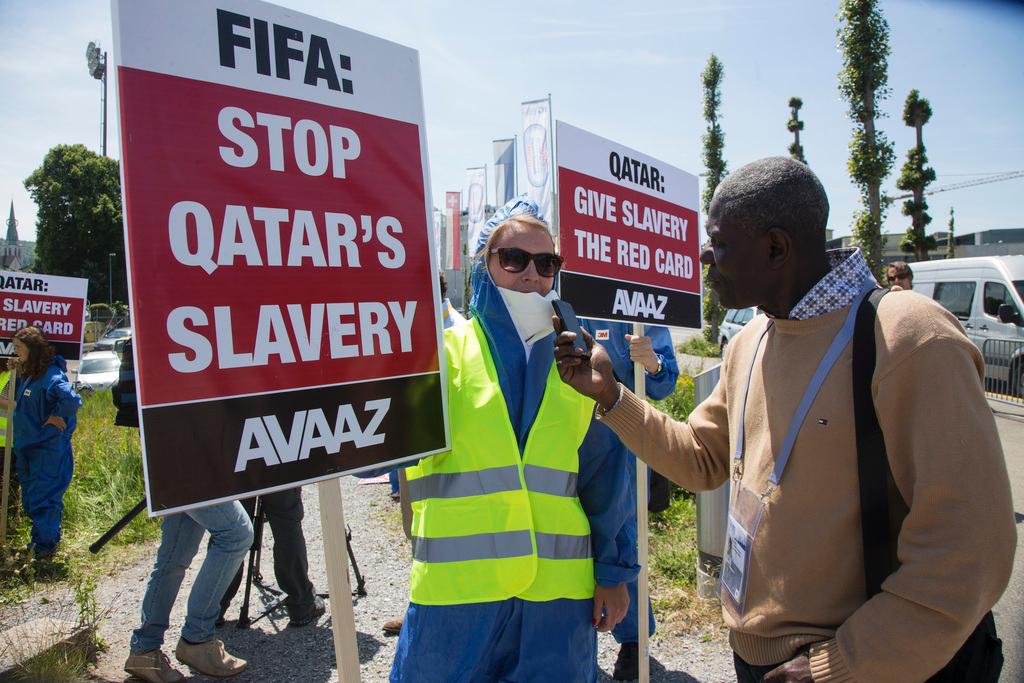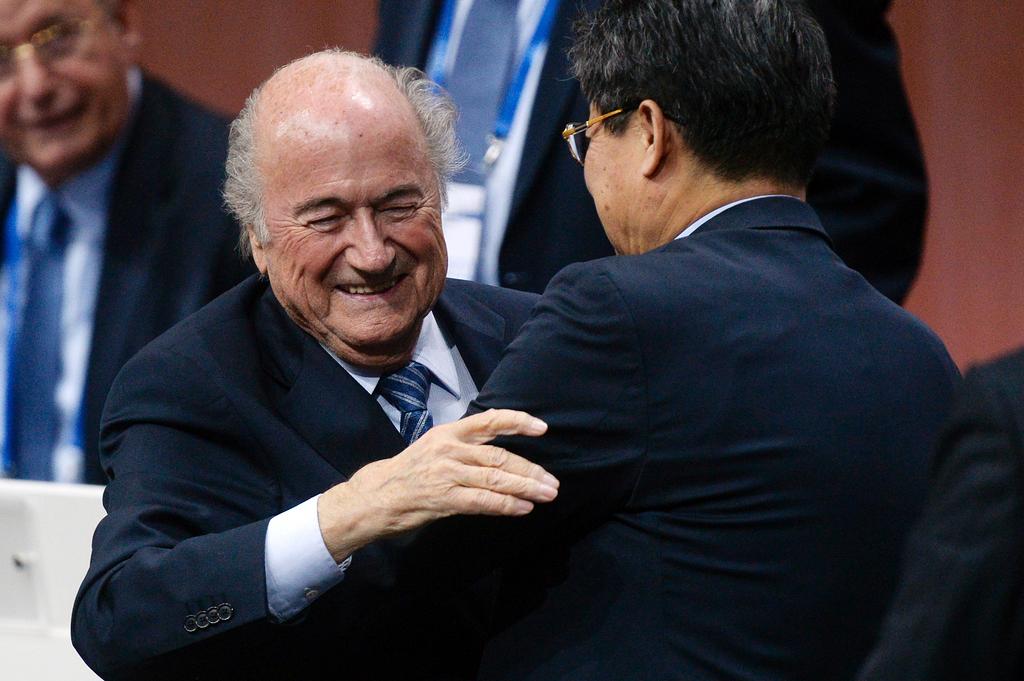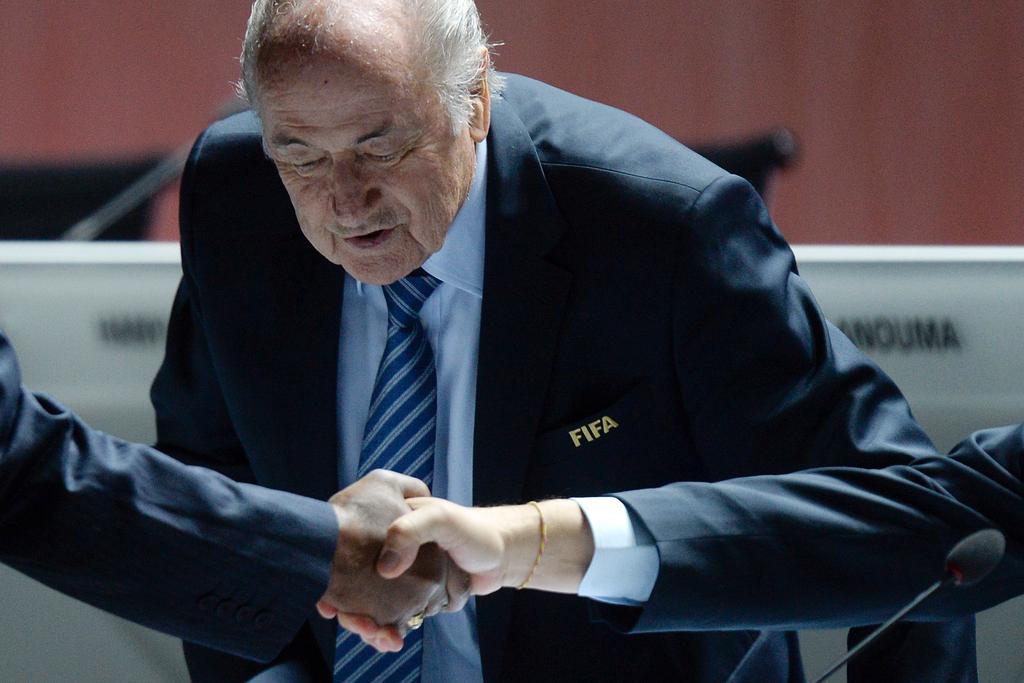The FIFA syndrome
The arrest of FIFA executives on a raft of fraud and corruption charges has been front-page news in recent days. But the charges brought by the Swiss and American authorities focus on bribery and embezzlement, and do not address another egregious injustice: the treatment of the migrant workers in Qatar who are building the stadiums for the 2022 FIFA Football World Cup.
Amnesty International recently released a report on the abysmal conditions in Qatar. The workers are subject to unsafe construction sites, exploitative recruitment agencies, and little recourse to formal justice. Recently, Nepal’s labour minister publicly spoke out about the government of Qatar not allowing his country’s migrant workers to return home to mourn relatives who died in the April 2015 earthquake.

As Amnesty International notes, the responsibility lies primarily with the Qatari authorities. But FIFA had – and still has – a responsibility to act. There have also been calls for sponsors, including McDonalds, Visa, Coca-Cola, Adidas, Budweiser, Gazprom, KIA, and Hyundai, to place pressure on FIFA and Qatar to improve working conditions.
Such issues have arisen in recent years in other sectors as well. In April, Human Rights Watch issued a report on the treatment of garment workers in Bangladesh. The report, prompted by the 2013 Rana Plaza collapse, in which more than 1,100 people died and over 2,000 were injured, highlighted poor working conditions, inadequate building inspections, weak labour laws, and the need for fairer wage practices and legal benefits.
Beyond these examples, there have been many others. In technology, Apple and Foxconn have faced criticism for working conditions at their Chinese production sites. Even educational institutions, such as New York University, with a new campus in Abu Dhabi, have been tainted by episodes of workplace exploitation and abuse.
These are not isolated cases. For every disaster and high-profile case that hits the headlines, there are many more that we never hear about.
Nonetheless, one hopes that the treatment of those who make the goods, produce the services, and build the things that make us happy and productive – from clothing and technology to sports stadiums and college campuses – continues to come under scrutiny. Globalisation should force managers – and all of us – to do some serious thinking about labour practices around the world.

Here is where it gets complicated. What counts as a company’s workforce? Are “its” workers only those people on its own payroll? Are companies responsible for their products’ entire supply chains? To what extent can – and should – a company be held to account for the choices of those who may be several links removed? When a serious issue has been brought to a company’s attention, are its managers obliged to address it, even if it involves the subcontractor of a subcontractor?
The larger and more complex the company, the harder it is to track all of the firms with which it does business, the firms that they then subcontract to, and so on. Companies, not surprisingly, say that their responsibility extends only so far. But that is not an answer; it is a choice. Organisations can decide to extend their reach. They can even decide that they want to know the full provenance of all materials and components in their products, and that they will hold their extended suppliers to account.
In this sense, the larger the company, the greater its responsibility. But larger companies also have a larger ability to become a force for good, both locally and globally. If a company the size of US retailer Walmart decides that it will not allow wasteful packaging, its purchasing power will lead to changes in packaging for the entire retail sector. The same is true of wages and labour practices.
When the world’s biggest companies and most well recognised brands take seriously their responsibility as buyers, sellers, and manufacturers and make a firm commitment to act on core values, others tend to follow – or risk being left behind. Those that operate in an ethical manner and seek to improve the lives of all who are associated with the manufacture, marketing, and distribution of their products will benefit from kudos, more business, or simply not being singled out as a bad actor.
By contrast, companies whose managers believe that a competitive marketplace is no place for ethical behaviour will suffer if and when consumers take their business elsewhere; government regulation and fines force them to act; or they become unable to attract an educated and ever-more discerning workforce. All of it – the constant scrutiny, the bad press, the tarnished reputation – will hit their long-term stock prices.
Much the same is true for organizations like FIFA. When sponsors like Coca-Cola or Adidas believe that their reputations will be tarnished by association with an organization engaged in corrupt practices, they will take their brand-management dollars elsewhere.
Companies are made up of people. Paying fair wages, adopting ethical sourcing practices, and upholding the dignity of workers should be a part of the way they calculate their success. Those who disconnect themselves from the fate of others, who act without conscience or a sense of right and wrong, and who spurn ordinary human decency have no place running organizations or sitting on company boards. The things that make us happy must not come at an unforgivably high price.
The views expressed in this article are solely those of the author, and do not necessarily reflect the views of swissinfo.ch.
Opinion series
swissinfo.ch publishes op-ed articles by contributors writing on a wide range of topics – Swiss issues or those that impact Switzerland. The selection of articles presents a diversity of opinions designed to enrich the debate on the issues discussed.
This article originally appeared at Project SyndicateExternal link.

In compliance with the JTI standards
More: SWI swissinfo.ch certified by the Journalism Trust Initiative







You can find an overview of ongoing debates with our journalists here. Please join us!
If you want to start a conversation about a topic raised in this article or want to report factual errors, email us at english@swissinfo.ch.